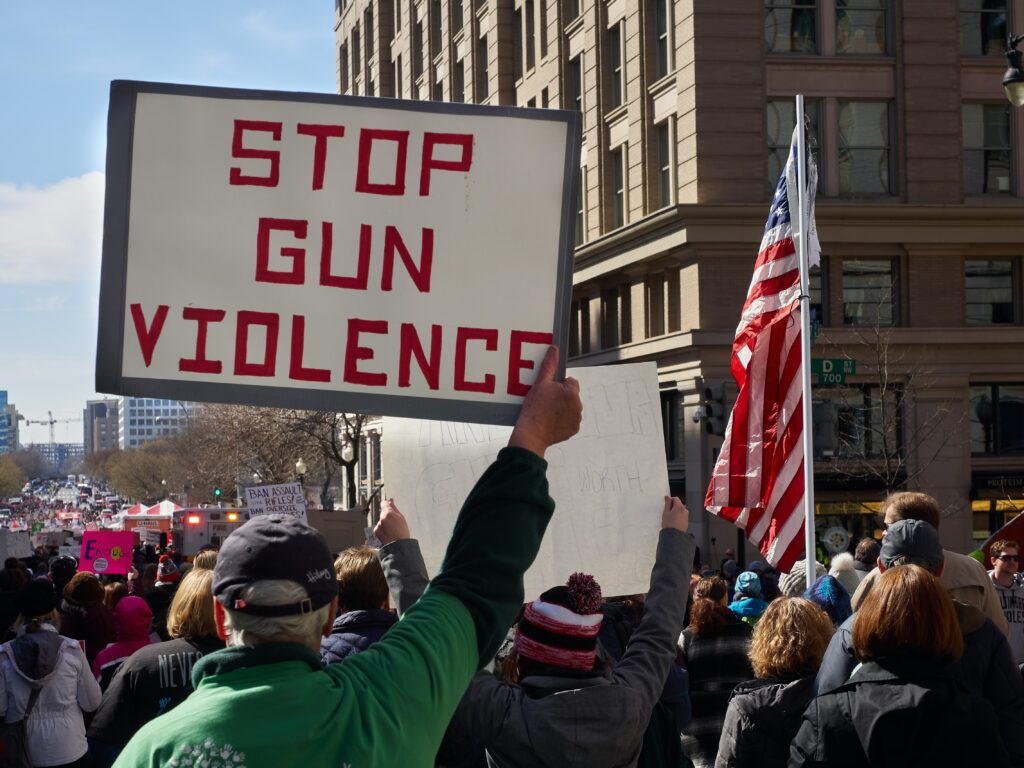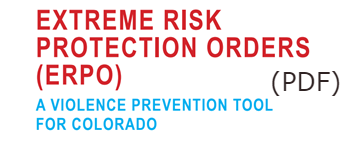Extreme Risk Protection Orders (ERPO)
What is an ERPO?
Commonly known as a Red Flag Law, an Extreme Risk Protection Order (ERPO) is a civil court order issued by a judge that temporarily prohibits a person in crisis from possessing or purchasing firearms. ERPOs provide a select group of individuals with a formal legal process to temporarily remove an individual’s firearms and reduce any further access to firearms if they pose a danger to themselves or others. The initial ERPO law went into effect on January 1, 2020. The expanded ERPO reporting law was signed April 28, 2023.
How does an ERPO help people in crisis stay safe?
An ERPO requires temporary removal of guns from the person identified in the petitioned order. (An ERPO is a civil petition.) That petitioned individual is also prohibited from firearm purchases for the duration of the ERPO. This creates safer circumstances for the individual to seek treatment, stabilize their behavior, and access resources to address the underlying causes of their potentially dangerous behavior to themselves or others. A temporary ERPO (TERPO) can last up to 14 days. A continuing ERPO lasts one-year (with a renewal option) after a court hearing.
Who can Petition for an ERPO?
Note: The 2019 ERPO Law was recently expanded after signature April 28, 2023.
Law Enforcement Officers (must be POST-certified – Peace Officer Standard Training):
- Police Officers
- Sheriffs
- Deputies
- Colorado Attorney General and the Attorney General’s designees
- District Attorneys and District Attorney’s designees
- City Attorneys and City Attorney’s designees
Community Members (direct professional relationship, who has interacted with the respondent in last six months):
- Licensed Health-Care Professionals
- Licensed School Nurse
- Physician
- Physician Assistant
- Advanced Practice Registered Nurse – who is the primary health care provider to the respondent
- Psychiatrist
- Licensed Emergency Room Medical Provider
- Mental Health Professionals
- Psychologist and candidate
- Licensed Professional Social Worker (LCSW) and clinical social worker candidate
- Marriage and Family Therapist and candidate
- Licensed Professional Counselor and candidate
- Addiction Counselor – Licensed, registered, or certified
- Addiction Counselor candidate
- Educators – Public, Private, Charter School Institute or Charter School
- Teacher
- School Administrator
- Higher Education Faculty
- President
- Dean
- Professor
- Administrator
- Instructor
Household Members
- People related by blood, marriage, or who share a child
- People who have resided with the respondent in the previous 6 months
- Domestic partners
- Stepparents
- Stepchildren
- Grandparents
- Grandchildren
- Legal guardians
- Past or present unmarried couples
You may also contact your local sheriff or police department to inform them of an unsafe situation. If you are in danger, call 9-1-1.
Have questions about ERPO? Email us at info@coloradoceasefire.org and a member of our staff will follow up with you.
Video Note: As of April 28, 2023, household members can file an ERPO in * County where a reported incident occurred * County where either the petitioner or respondent resides * County where either the petitioner or respondent is employed. All other petitioners must file in the county where the respondent resides.



